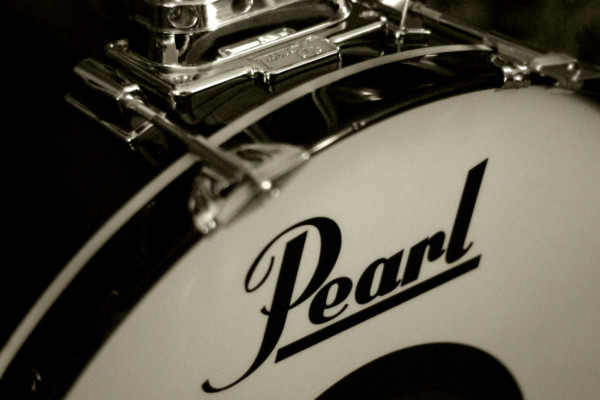Musical Diplomacy: Bassists, Drummers and Locking In

Q: I’m having trouble grooving with the drummer in my band. My bread and butter is hip-hop and R&B, and he is coming from the world of straight-ahead jazz. We play in a very backbeat-oriented group, and the only time there is ever a pocket is if I put him in mine and carry him around in it all night, which is draining. The thing is he’s a wonderful band mate – always punctual, easy to be around, a hard worker – plus he has computer and programming skills that are invaluable to our project, as he maintains the website, social networks, writes code, etc. Do you have any suggestions to help remedy this issue?
A: I have two thoughts here. One can be viewed as positive, the other might seem a bit more negative.
First, the positive.
I play in a trio with a guitarist who comes from a place of groove and a drummer who is much more free. Both of these musicians are phenomenal and listen extremely well. However, the drummer is very expressive and often pays little attention to metronomic time.
The very first time I played with these two guys, I was in hell. I felt like I was trying to connect them and spent much of the night not knowing where to go. Lock in with the guitarist (who has great time)? Or flow with the drummer (whose space in between beats could flex like crazy)? It was like I was holding leashes for two large dogs who both kept trying to run in opposing directions.
It’s hard to explain playing with this particular drummer because I typically have little patience for drummers who can’t control their time and feel. The difference with this guy is that he’s 100% in control and 100% aware. He’s just coming from a different place musically and he’s intentionally creating rhythmic tension.
By the second gig, I had to make decision and decided to follow the ebb and flow of the drummer. I was amazed to find that I could treat the time not as a straight line but more like the flow of a river. And since we all three of us listen well and make micro adjustments on the fly, it actually sounds very cool. Again, it can be hard to explain how and why this particular trio sounds good in light of every reason I just gave, but it does. There may be a little bit of magic happening with this specific combination of guys, approaches, influences and tastes.
Now for the negative. The chances of this working in most instances is close to zero. The trio I mentioned is a more modern jazz group with a groove foundation (but it’s still a jazz trio). You specifically mentioned that yours is a groove band, and that means that everything really falls on the rhythm section to make it feel right. Since everything else about the drummer is on point, I would suggest that you ask him to go to school (stylistically speaking).
Most of the true “jazz” drummers I know have a funny pocket in groove situations. They just feel both the beat and the space in between the subdivisions differently. They also tend not to hit the drums in the same way (or tune them the same either).
If your drummer is amenable to the idea, maybe you could make him a list of tunes to internalize. Not only should he transcribe the grooves and learn them inside and out but ask him to pay attention to the sound and intensity of the parts.
I tend to think visually. This is subjective, and you can take it or leave it, but I feel jazz drumming feels circular while a funk groove drumming is more squared. There is most definitely a swing happening in most funk grooves, but it’s almost like an over-swing – less triplet-y and more of a 32nd note type of swing.
He should also pay special attention to the way in which he hits his snare drum. It needs to be with authority and with a little rim in there. That crack goes a long way, for the more emphasized snare hits anyway.
I would bet that if he just committed to listening to music that has the type of drumming you’re wishing for, it would go a long way. Once he feels it inside of him, he’ll have no problem expressing it properly on the kit.
A good groove band can’t have a squishy groove, so you’ll need to address it so you’re not wasting time and imposing a “quality ceiling” because of a weak link.
But, with time and attention, all issues can be addressed and remedied. Ultimately, it will make your drummer more versatile and he’ll thank you for it (hopefully).
Best of luck!
Your turn, readers. You all add such great insights to these columns. Feel free to light up the comment section with stories and ideas you may have!
Have a question for Damian Erskine? Send it to [email protected]. Check out Damian’s instructional books, Right Hand Drive and The Improviser’s Path.




Here is an idea. Play in his pocket for a bit.Ive had the same experiences and have found that sometimes I dont have the well rounded verstility I think I have, You will come out a better player.
I agree. That’s kind of what I was eluding to with my first example. While the sound might be different, it very well may be that a shift in perception and approach can lead to unanticipated goodness!
Again though, I feel that might work better in a jazzier context than a straight up “groove band”
In my experience, jazzier drummers like to have the bass player ‘push’ or ‘lead’ the pulse while they swing of off it, the opposite of what a traditional funk/r&b bassist might expect – that the drummer sets the feel for us to be within or behind. It certainly is hard work to carry the drummer in your pocket as our friend so eloquently puts it, but it can work well and feel great for the audience and there’s nothing wrong with that! I like bass to be like glue, I know where I’d like it to be, but am also super aware of where it’s needed in the ensemble to make it work. It’s always challenging to play with those whose time concepts are different and being able to adapt is a great asset.
The danger in playing in his pocket is that it can make the whole thing collapse like a house of cards. I’ve been in many situations with nightmare drummers, and the times when I finally gave up “holding the line” and went with the drummer, the whole gig went down hill. Even worse, the band will blame “the rhythm section”, not just the drummer. The other thing I have noticed over the years is that a particular drummer’s perception of the pocket, attack, articulation, etc tends not to change when he switches styles. it is the RARE drummer who can completely switch their time perception from style to style.
What do the other band members think?
No, to me he’s not a hard worker, to me it’s: work your instrument first to be sure you can do the thing. Music is not about social media or programming, you can be a killer programmer, if your band sounds like shit, it will kill your reputation. if you can’t play together, move. He seems to not have the skills required, having the skills is indeed hard working, repetition, again and again… I decline a gig if I feel I can’t do it, don’t want to waste my time and don’t want the others to waste their time with me, this is what I call “honesty”. diplomacy, yeah it’s cool (one of my brother works in Foreign Affairs ministry lol) but I’m really fed up with loosing my time in a rehearsal , and wasting EVERYONE’s time ! when a drummer don’t do it.
Andyes Damian is right in that case: “go back to school dude”, if you are a polite person (which I recommend if you want to keep good relationships and work so ! in your town) just leave the band saying you don’t feel the thing, don’t mention the abilities of someone in particular, and find better guys. THIS is diplomacy.
As musicians we should be professional listeners.Simply equated as in communicating and speaking to one another.A most courteous thing to practice is when someone is speaking stop talking and listen.Many times one must look into the eyes of the said speaker,allowing his/her thoughts and ideas to come across.Then by getting into the flow of the conversation between two or sometimes more people ,by reacting in that flow unselfishly everyone will get ample opportunity to speak and be heard.We all know and have experienced the people who interrupt,dominate and go off on tangents that causes tension in the group.I can usually tell after listening/talking to someone whom I’ve just met whether or not I’m gonna enjoy myself.
I agree with the wearied pocket carrier that it is draining.Some people are just very aggressive and are not gonna change.Some do not have the ability to change and go with the flow and personality of the band musically speaking.If left unaddressed and changed it will cause a bitter animosity between everyone and seem to suck the very musical life out of the band.
I’ve addressed only the negative side of things I know,but If the apparent timekeeper of the band isn’t grooving with you in hiphop R&B music, he’s likely to not be any better with jazz or swing.
I also agree with Mr.Mahoudeaux that time is important and none of us really have much to waste!
This is a great topic and discussion. Similarly, I am playing mostly standards jazz in a group now, and the drummer is pretty good at tunes that swing (although he has the tendency to pick up speed, sometimes dramatically, over the solos – he just loves to play fast). But if we introduce a tune like Soul Intro/The chicken, or Chameleon, he can’t make it feel right and I get frustrated. Feel aside, he rushes like crazy so I’m fighting him the whole time to the point where we might get to being a beat apart, or lose the time entirely. I’ll try some of the tips above – or think about moving on soon.
Groove, pocket, laying down a firm and strong foundation is, to me, the rhythm section’s prime directive…..that’s when the bassist and drummer are locked in….after that it’s easy for one another to follow, even anticipate fills and off the beat rhythms. That’s when the fun(k) starts. Somebody has to drive the train. Be rock solid, make sure your time is impeccable. If it’s just not working, move on. In music, as in life, everyone is not necessarily compatible…nothing wrong in that.
Hard call.
Musicians coming from different backgrounds & types of music often makes for interesting fusion and is the normal evolution of popular music.
OTOH, while many here will talk about their desire for versatility in their music making, I think in a perfect world you play the kind of music you truly love. I’m a big blues fan myself and that genre is more about feel and attitude than technical ability. Yes you can analyze it and mimic it but I like to think I can tell the difference.
The really sad thing is that 99% of the audience has no clue what we’re all talking about here. I’ve seen lots of bands that work a lot, draw decent crowds and sound like lounge lizard hell to me.
Playing with a drummer is like having a girlfriend. Communication goes a long way. Just like a girlfriend, you’d be surprised how much things can improve if both people talk openly and are dedicated to the relationship.
I think the drummer/bassist connection is key in any setting, be it jazz, groove, rock, country, whatever. Whoever has to compromise be it the bassist or drummer, or combination of both, it’s for the greater good of the groove. It’s gotta lock or it’s just uncomfortable, for both the players and listeners.
Good column, good comments. I’ve descibed the role of bass player as having to alternate between being the glue that holds things together and being the oil that lets all the parts work smoothly — regardless of the “dirt” in the machinery. Listening is always key … listening to everybody at once. Yeah, it’s hard work sometimes. Using more passing notes, emphasizing the One more than you would normally, pushing or dragging the beat, occasionally having to sit in that odd space between where the other players seem to be feeling things… being honest (hey, how about sticking with straight four in the chorus? I keep losing you halfway thru.) Good musicians seem to eventually find their way to the land of groove. Egoists and bad players may not. We all have to decide when a project is too much work, but I think sometimes the reward for patience and practice exceeds our expectations when it all finally comes together.
Great comments, glad to hear of common experiences that I’ve shared. Just one thing to add.. I think I’m a pretty diplomatic type and I feel that a crucial thing is helping the drummer relax so that he can think ‘groove’ rather than ‘beat perfect’. Especially with jazz drummers (at least in my experience) it seems that they really want to do their best and in trying to do so, they’re ‘over-thinking’ their part to the point where they’re letting ‘getting it right’ get in the way of ‘relax and fit in’. A calm and nonconfrontational comment: “hey, how ’bout a little less snare on the bossa?” or “a little less kick, only like every other bar or two on this swing?” seems to work. So in general it seems like the old adage, less is more, and when the drummer realises that there’s less pressure to play what’s ‘expected’, relaxes, and stops over-thinking his line, magic happens.